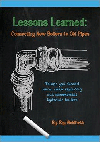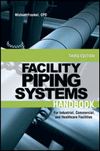US Flow Starts To Liquidate; Tries Reselling To Former Owners
The initial decision forced the Grand Rapids, Mich.-based PVF distributor to shut down operations without warning. Chapter 7 status allows the company to use a limited supply of cash to support business operations, in this case only till the end of September. As we went to press, the company was scrambling to call key employees back to work.
US Flow had filed for Chapter 11 on Aug. 12 after watching annual sales drop from a 1999 peak of $340 million to $265 million in the year preceding its bankruptcy filing. At the time the company listed assets of $69 million and liabilities of $123 million.
The industrial PVF chain was formed in 1999 during Wall Street's roll-up craze when investors purchased three supply organizations: The Bertsch Co., headquartered in Grand Rapids, Mich. Mutual Manufacturing and Supply Co. of Cincinnati, Ohio, and Piping & Equipment, based in Conyers, Ga. US Flow added Plotkin Bros. Supply of Glassport, Pa, to its organization the following year.
While in bankruptcy proceedings, the company had agreed to sell certain assets of Mutual Manufacturing and Supply Co. and Plotkin Bros. back to their original owners. However, McJunkin Corp. filed an objection to those transactions with the Bankruptcy Court, requesting more time to evaluate the companies and possibly making its own offer to purchase them at a higher price.
Also, as we went to press Supply House Times learned that negotiations were underway to sell back at least portions of The Bertsch Co. operations to investors led by former owner John Bertsch. Bertsch had been the fourth generation to preside over a family business dating back to 1875.
The roll-up organization that came to be known as US Flow had more than 50 locations and 650 employees in 17 states ranging from Michigan to Florida, westward to Oklahoma and as far east as West Virginia. Roll-up consolidations generally take place with an eye toward turning the consolidated organization into a public company. However, the US Flow roll-up occurred just about the time Wall Street turned sour on roll-up IPOs and the company remained privately owned.
Timing of this roll-up couldn't be worse. US Flow came into existence coinciding with a steep downturn in the industrial PVF business nationwide.
Looking for a reprint of this article?
From high-res PDFs to custom plaques, order your copy today!






